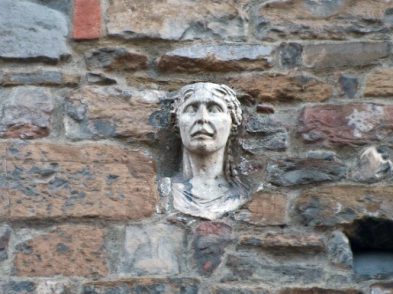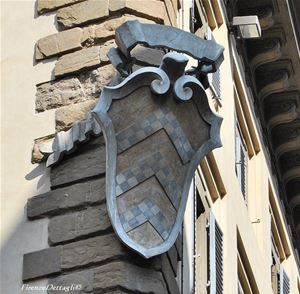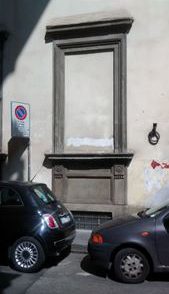‘Why shouldn’t Mussolini have an empire? All the best people in Europe have empires.’ So affirms the imperious British expat Lady Hester Random (played by Maggie Smith) in Franco Zeffirelli’s 1999 semi-autobiographical film, Tea with Mussolini, to be screened at the British Institute on March 20. Set and shot in Florence and San Gimignano, the movie focuses on a group of forthright English women living in Florence on the eve of World War II. These eccentric ladies were based on real women living in Florence in the 30s, a group whose stinging wit gave them the nickname gli Scorpioni.
‘These ladies helped me to understand my own city, my own culture and my own upbringing,’ Zeffirelli writes in his autobiography, ‘They brought me to see things with new, fresh eyes. I’ll never forget how they contributed to my growth.’ Wildly eccentric and passionately in love with Florence and its art, these women became as much part of the Florentine childhood of the illegitimate, motherless Zeffirelli as the Duomo and Dante. Of particular impact on his childhood was Mary O’Neill (Mary Wallace in the film, played by Joan Plowright), who instilled in him a love of Shakespeare: they used to play the balcony scene from Romeo and Juliet together. ‘Florence isn’t just shiny cars and ice creams as little boys think,’ says bohemian would-be-artist Arabella (played by Judi Dench), to Luca, the boy based on the young Zeffirelli. ‘It’s the human form divine. The body beautiful. And you—yes, you—could be part of that world and make to create. To live as those old artists did, Luca, is to share a part in the divine plan.’

Declaiming poetry from the tomb of Elizabeth Barrett Browning at the English Cemetery and taking afternoon tea among the artworks of the Uffizi, as war closes in around them, these feisty women refuse to leave Florence and abandon their life there. Finally consigned to an ‘internment camp’ in San Gimignano, their rather overwhelmed guards have little choice but to let them come and go practically as they please. The dramatic final scene sees the elderly women tying themselves to the historic towers of the town to prevent their demolition by the Germans. Defiant to the last, they refuse to be taken to safety by the Scottish soldiers who liberate the area: ‘The Germans and the Italians couldn’t get rid of us. There is absolutely no reason why we should surrender to the Scots.’
While it is unclear how much of the film is invented, the real-life Scorpioni certainly made an impact on not only Zeffirelli but also on Florence. Unfortunately, aside from O’Neill, the names of the other real-life Scorpioni are unknown. The group of women are mentioned in the memoirs of writer Violet Trefusis, English writer, socialite and lover of Vita Sackville-West, and they did indeed spend their days at the English Cemetery and the Uffizi, as well as at Gran Caffé Doney, on via Tornabuoni, a haunt of British nationals in Florence at the time. Serving English tea, cakes and sandwiches, it was attacked by Fascists in 1935–36 after the British community expressed public disapproval of Mussolini’s invasion of Abyssinia.

The Scorpioni were part of a large community of Brits in Florence during the early decades of the twentieth century. Between the wars, Florence counted more than 18,000 full- or part-time English residents. Many British shops, selling everything from English muffins to Reeves paints, sprang up near the British Consulate, at that time on via Tornabuoni. ‘We hear English on all sides … At Doney’s in the via Tornabuoni … everyone goes in for a cup of tea or chocolate,’ wrote Mary Alsop King Waddington, wife of the ex-premier of France, while staying in Florence. During this British heyday in the city, there were several English-language newspapers and libraries of English books, and the British Institute, the first British cultural institute to operate overseas, was founded in 1917 to ‘promote cultural exchange between Italy and the English-speaking world’. In fact, there were so many British nationals in Florence that, as Zeffirelli says of the Scorpioni in his autobiography, ‘even those who lived in Florence forever never learned Italian; they lived in their own world. We would shout “Guarda gli Inglesi!” as they strolled downtown under their parasols.’
It is unlikely, however, that any of the real-life Scorpioni met Mussolini. Lady Hester Random’s high tea with Il Duce in the film is rather based on Violet Trefusis’ meeting with him, during which, as she amusingly describes in her autobiography, she accidentally spilled all the contents of her handbag on the marble floor.
There is verisimilitude, however. Not only were most of the extras in the Florence scenes recruited from the English community, but the eccentricity and stubbornness of the Scorpioni is perfectly reflected in the English actors who played them. During filming in Rome, the stars’ trailers couldn’t be parked near the set. Even at the height of summer, Maggie Smith, Judi Dench and Joan Plowright waited for their scene, sitting on folding chairs in wigs, wool suits and fur coverings. ‘The ladies are mad as hornets,’ whispered one production employee. Maybe as mad as the Scorpioni themselves.
Tea with Mussolini will be screened at the British Institute on March 20 at 8pm.See www.britishinstitute.it for details.







